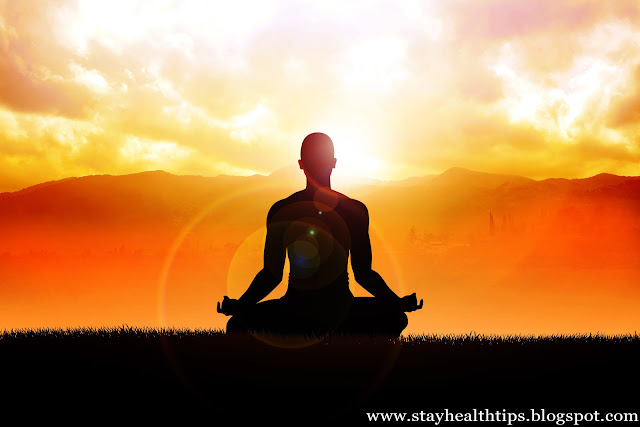Yoga Beginner: When she was 14, Janna Leyde’s father got into a close
deadly car accident that changed her family’s life. The accident resulted in
traumatic brain damage that influenced her father emotionally and physically.
What followed were years atypical of the normal American family life,
characterized by her father’s fraught and trauma with the challenges of
recovery.
“What I realized thinking back, was that my dad really
didn’t realize how much the trauma had limited him and changed him,” shares
Leyde. “I wanted to assist him change that.”
And she did --- through yoga
Leyde, a trained yoga instructor, found how yoga can
radically transform a man—witnessing the advantages in her own life as she
practiced. “I adapted better, I was in a better place mentally and
emotionally.”
She asked her father if she could show him. After receiving
skeptical approval from her father’s doctors—and her father’s own
instability—she started to practice yoga with him.
“The first time we did it was a surprise to my father,”
shares Leyde. “He was suddenly aware of his body.
“What I’ve discovered is that when you go through trauma,
your brain and body disconnect and a lot of times when people have brain PTSD
or injury, they still think of themselves as the individual they were before
the injury,” says Leyde. “Yoga assembles the connection back together.
“Over some time with that practice, simply getting on his
moving, breathing, mat, he was physically getting in better shape -- Yoga Newton. In the meantime, he was
likewise developing a better attention span, being more compassionate, less
impulsive.
“Through practice, my dad had a better understanding of his
injury and this assisted him so much. These simple poses were helping him like
nothing else can.”
In 2013, Leyde published He Never Liked Cake, a book that
chronicles her dad’s injury, how it influenced their lives and his journey to
recovery. The experience pushed Leyde to work with others who suffer
from TBI and PTSD—and her continuing work with veterans.
A year ago, Leyde piloted a program with the Wounded Warrior
Project—an organization that has supported over 75,000 injured veterans who
have served since September 11, 2011—that urges veterans to practice yoga for 8
weeks. Those who attended experienced change that they have not been able to
accomplish with traditional approaches.
“The members shared different stories,” says Leyde. “They
rest better, they feel better and some have said they don’t need the medications
they have been taking. They have distinctive experiences but all of them have
to do with improving their quality of life. Which is impactful?”
Emerging research demonstrates scientific support that
similar therapies such as yoga provide significant health advantages for
patients with PTSD and those with brain injuries. The Veterans Health
Administration is starting to implement more programs that embrace different
approaches.





